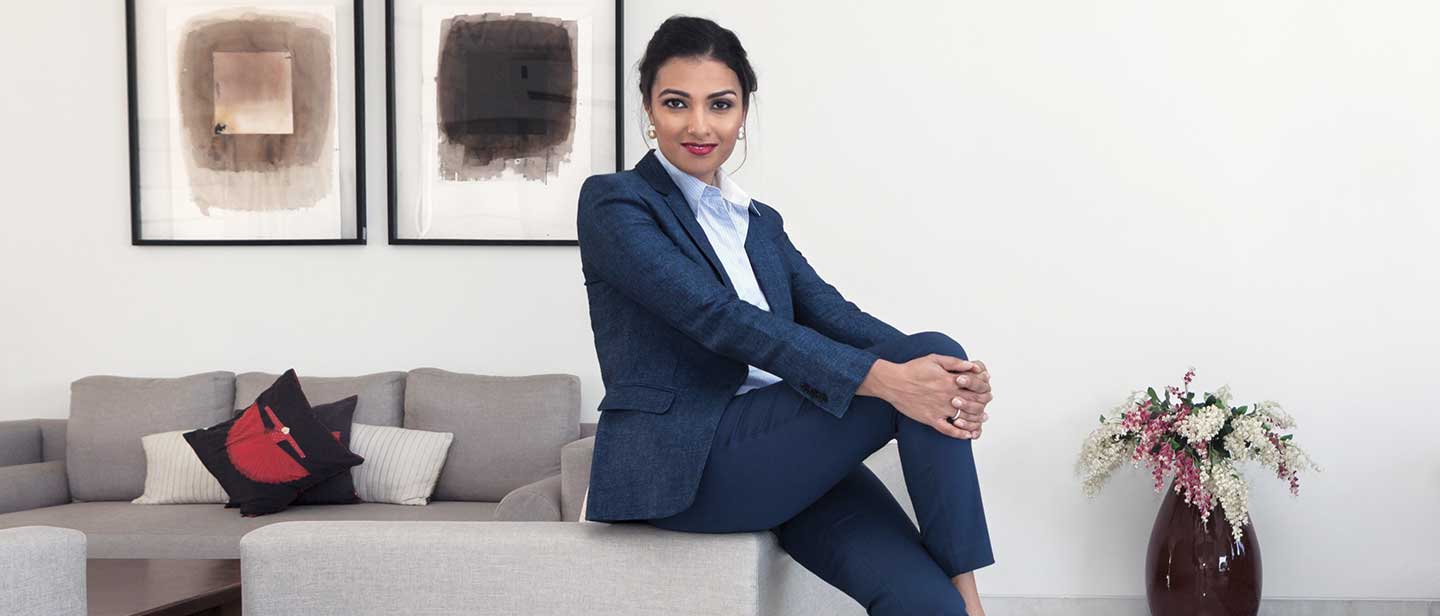Ameera Shah, managing director and CEO of Metropolis Healthcare, aims to expand the corporate chain of diagnostic centres through a combination of Greenfield and Brownfield strategies

“We have become aggressive with our Greenfield expansion over the last two years,” declares Ameera Shah, managing director and CEO of Metropolis Healthcare (Metropolis). She continues, “We were always wary of entering locations on our own where we did not have a strong presence. We were looking at partnership models to go to such places.” However, the company decided to experiment with it and setup 10 labs in FY 2012 and 12 labs in FY 2013. “We have done better than what we expected to do and are comfortable with this process,” says Shah. Henceforth, the company’s growth will be a combination of the two – Greenfield and Brownfield methods. If Metropolis finds partner labs of its choice then it will take this route to grow in cities, but, in smaller towns, it may choose the Greenfield expansion route.
From being a one-laboratory enterprise in Mumbai to a multinational chain of 105 labs, Metropolis has come a long way, especially in the last 10 to 12 years since Shah took charge of the company. She has certain non-negotiables for running her business – maintaining the delivery of high quality services to its customers and attaining process efficiencies. She has developed a culture in Metropolis that puts the patient’s interest first and ensures high quality services with a zero percent error rate.
“The fact that people can count on our reports and the doctors never find our results wrong will drive our business going forward.”
To handle the day-to-day operations, the company has established systems, processes and protocols and steps when there are exceptional cases. SAP has helped create a lot of internal efficiencies in the organisation with respect to inventory control, credit control, manpower and so on. “We currently are probably the only player in this sector that has SAP rolled out in every branch,” shares Shah. This has now been integrated with its new lab integrated management system, which will track a patient’s sample status on a minute-by-minute basis. And once the report is ready, the patient receives a SMS alert and the report via email. “Our processes make it very convenient for the patient and the doctor in terms of maintaining files,” says Shah.
Next phase of growth
With an estimated market size of about Rs. 10,000 crore to Rs. 15,000 crore, the clinical diagnostics sector (including labs inside the hospitals), is growing at about 10 to 15 per cent annually. The company, on the other hand, has been growing at an average of 25 per cent a year over the last two years, and expects to close FY13 with a turnover of Rs. 450 crore. “Unless your infrastructure is growing fast, your growth rate will start dipping at some point as your base keeps getting bigger,” states Shah. When we wrote about the company in July 2011, it was just inaugurating its facilities in countries like Kenya, Tanzania, Kuwait and Bahrain. It has recently expanded its services into Africa.
On the technology front, the company has extended its range of tests over the last two years. It is now offering 4,500 varieties of tests as against 4,000 in 2011. “Every year our R&D department is coming up with 300 to 400 new tests,” adds Shah.
Pathology as a segment is not in the forefront of a customer’s mind apart from an interaction once or twice a year. The patient’s relationship is more with the doctor. To stay connected with its patients, Metropolis plans to launch a retail format for healthcare products. So, whether you are a diabetic, heart patient, healthy patient with no illness but want to manage your health, senior citizen or a pregnant woman, the company has sourced a whole range of products from the international markets to sell to consumers. It has launched this format in October this year with Lister Metropolis in Chennai. “Once we get comfortable with this in Chennai, we will launch it across India,” shares Shah.
Challenges galore
As our business is regional, talent is variable. For example, in Tamil Nadu, there are very few pathology seats available in medical universities. And hence, the numbers of pathologists are few and the price paid per pathologist is high. Mumbai has no such shortages. Therefore, pricing, availability and skill levels are different everywhere.
“Competition is quite fierce in the metros as everyone is coming in for a piece of the pie, especially corporates,” shares Shah. According to her, the easiest thing to do is to set up a lab. If one plans to set up a routine lab, it can be done with an investment of Rs. 50 lakh to Rs. one crore. The challenge is in getting the business at the right price, offering quality services and running the business profitably. “It is easy to set up a lab and pick up samples by cutting prices. But then you are going to compromise something in your backend – quality or profit, either of which do not allow you to be a long term player,” says Shah.
Today, the question that Metropolis is faced with is what is the benefit of being a chain of diagnostic centres in India? If a patient in Chennai goes to Lister Metropolis, it gives them the comfort that it is a branded lab and results will be standardised, of good quality, with convenience of electronic reports and with some pricing benefits. While the local lab is comparatively less expensive, the benefit of being a chain will actually strike when the health insurance companies start paying for the diagnostic tests. “Then, the insurance company will tie-up with one or two chains like ours across India,” states Shah.

Growing its base
Metropolis aims to grow in Africa and expand in India, especially the Tier 2 and Tier 3 cities. In India, it aims to add about 15 labs a year – both through Greenfield and Brownfield methods. “However, my focus is not really on the number of labs or centres we add, but in identifying an unmet need and doing something different,” states Shah. The company will require around Rs. 50 crore to Rs. 100 crore annually to execute this plan, which will be funded through internal accruals.
Going forward, Shah wants Metropolis to be the leading chain of diagnostic labs in its market space. The company is currently valued at about Rs. 1,500 crores in FY13 and aims to hit the billion dollar mark in the next five years. However, what’s even more important for Shah is for Metropolis to be known as the most respected chain of labs in this space. The ability to be flexible, to see trends that are coming and adapt to them are some factors that will contribute to its growth. “The fact that people can count on our reports and the doctors never find our results wrong will drive our business going forward,” concludes Shah.
| Then | Now |
| Number of labs – 85; number of collection centres – 550 | Number of labs – 105; number of collection centres – 700 |
| Present in South Africa, India, Srilanka and UAE | Added Kenya, Nigeria, Oman, Quwait and Africa |
| Number of tests done – 4,000 | Number of tests done – 4,500 |
| Number of employees – 2500 | Number of employees – 3100 |
STARTUP SCHOOL WITH AMEERA SHAH, MANAGING DIRECTOR, METROPOLIS HEALTHCARE
When Ameera Shah took over the reins of Metropolis Healthcare in 2001, she transformed it from a single laboratory to a nationwide chain of laboratories by forging alliances and joint ventures. She shares with us some key lessons learnt during this journey
A well-balanced diet
Shah finds that when money is easily available, entrepreneurs take exceptional risks and when the market falls there are many of consequences to bear. She tries to be balanced when it comes to taking risks, keeping in mind the long-term growth of the company.
We work with people with whom we have a similar wavelength and who bring synergy into the business. Based on credibility, we have forged JVs with pathologists who have been in the industry for many years in different locations. This has paid off very well in the long run.
Despite strong growth opportunity in India, we entered the African market in the services sector, which is difficult and complicated to manage. Our experience in handling complex business models successfully gave us the confidence to make this entry. We have at least one partner in every State in India and to manage them you have to be able think regional, be flexible and customise yourself to each partnership. We are following the same strategy in Africa.
However, before entering any country, judge its macro-economic condition, the opportunity it poses, the political situation, the kind of people you are dealing with and the work ethics of the people. Identify the growth opportunity that the country has in store for your sector, the business models being followed there and, most importantly, how are you going to take something unique to the table. We enter a country only if we feel that we are satisfying some unmet need of the customer.
Made for each other
To grow Metropolis, Shah took the route of forging partnerships with local or regional players. She explains how to identify a partner and the operational changes needed.
“Lister Laboratories, with whom we forged a partnership in 2003, was run by Dr. Srinivasan. He was running this lab for about 20 years before our alliance and has been a friend and well wisher. We knew that he was a very straightforward person with high principles and ethics, which meant that he would not intentionally take any short cuts. These characteristics are very important and are one of the first things we look for in a partner.
We look for a lab, which has managed to differentiate itself from the rest and is among the top three in the city. It has to be a reasonably profitable lab with a good reputation among doctors and patients. The person who is running the lab must be willing to grow the lab and take it to next level. They should be willing to make changes, be flexible and adapt to a new style of functioning.

When we invested in Lister in 2003, it was a one-location centre in Nungambakkam with only walk-in patients and revenue of less than Rs. 4 crore a year. But it had a very good reputation among patients as a good routine lab in Chennai. Our initial task was to make Lister available across Chennai, offering routine and specialised tests. Before the alliance, Lister was offering only 300 to 400 varieties of tests while Metropolis, Mumbai was offering around 3000 tests. After the alliance, it started to offer a broader spectrum of tests. Lister Metropolis also started outsourcing its services to hospitals and laboratories across TN.
However, before we got to this, the first year of operation was a lot about understanding the way the other person worked. We changed the operations, service vendors and the culture of the organisation. We started adding more collection centre across Chennai, introduced specialised tests to all the doctors, introduced wellness health check up and started home visits for patients. On back end, we improved our profitability, strategised for sales and marketing. Today, we have labs not only in Chennai, but also in Salem, Pondicherry, Coimbatore and soon in Madurai.”
Expanding your tentacles
Metropolis entered the international market in 2005. Shah shares with us factors that one needs to keep in mind while setting up shop globally
One, Indian companies should look at international expansion when they have a strong hold in the Indian market and have enough cash liquidity. When we decided to enter Africa, we also had better experience in managing international ventures.
Two, do your due diligence on the country and partners.
Three, be very clear about the legal terms. If you are partnering with a company find out who is running the business, his or her management practices and so on.
Four, be closely involved in the partnership and monitor the progress made.
Five, make sure you are filling a void in the market. The reason we went to the international market is because we found a big void in our sector’s services. Today, the largest pathology player is a company based out of North America with 99 per cent of its revenues coming from its home base. This suggested that there is really no global chain for our kind of services, and hence, wanted Metropolis to be a chain of diagnostic services across the emerging markets.
Woman to woman
A few pointers from Shah that might help women entrepreneurs, especially those who are not from the business background
“Entrepreneurship is complex in India, whether you are a man or a woman. The additional challenge that I faced is that I am not from a business family. As my parents are doctors, their friends are also doctors. When you grow up in a business family you hear about business at home and you are attuned to what you can expect in the future. There are enough advisors to turn to when you are stuck in any situation. With women, most of our friends are either housewives or hold a professional job and are from a structured environment. Therefore, they may or may not be able to help with the entrepreneurial problems. I had to almost artificially create that support system myself.”
A malleable lot
Talent acquisition and retention is a big challenge for this sector. Shah explains how she tackles this.
“Metropolis is an Indian grown, indigenous company with a complicated business model. We need people who are flexible to changes and are comfortable in an unstructured environment. Those from a very structured environment are likely to have a hard time adjusting at Metropolis. They know what the boundaries are, but in our case, boundaries are grey. You have to work with a little bit of instinct and less with process at a business level.”
